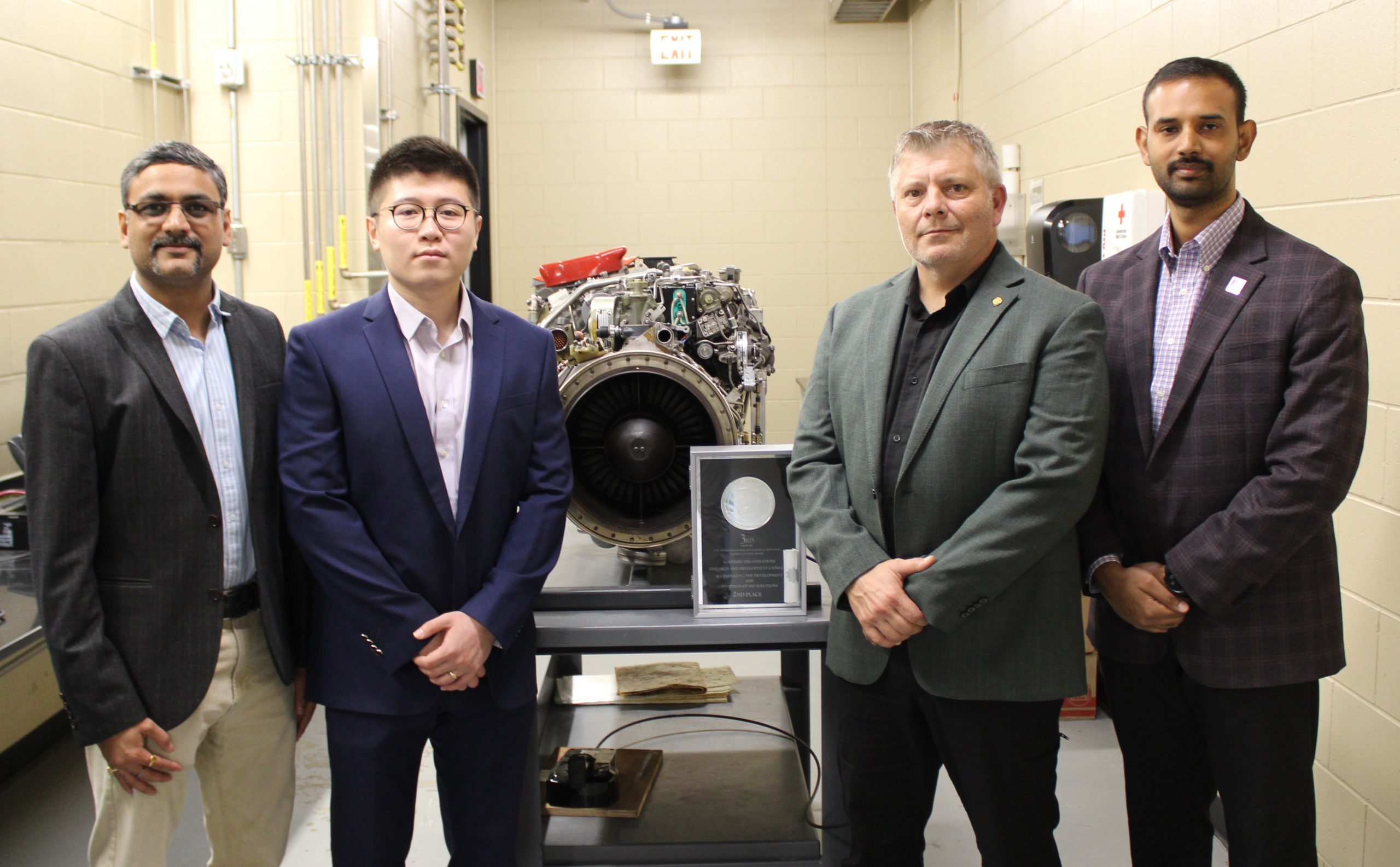
Dr. Bhupendra Khandelwal, Chuming Wei, Jerry Hamilton and Vamsi Krishna Undavalli.
Graduate students from The University of Alabama are making waves in the world of aviation. Vamsi Krishna Undavalli, Jerry Hamilton and Chuming Wei from the Engines and Combustion Laboratory in the Department of Mechanical Engineering have received the Sheikh Mohammed Bin Rashid Al Maktoum Global Aviation Award. Under the mentorship of Dr. Bhupendra Khandelwal, the team secured second prize in the 2025 cycle, receiving a $150,000 cash award.
The SMBRGAA, co-organized by the International Civil Aviation Organization and the General Civil Aviation Authority of the United Arab Emirates, celebrates innovation, sustainability and excellence in aviation. Established in 2016, the triennial award recognizes research that drives industry advancement, and the 2025 competition focused on advancing sustainable aviation fuel (SAF) development, a pressing challenge for the industry as it works toward global decarbonization goals.
Members of UA’s team stood out for its innovative research linking fuel chemistry to real-world engine performance. Their project tackled some of the most critical hurdles in SAF adoption, including emissions reduction, contrail formation, turbine engine material compatibility and thermal stability. To do so, the team developed cutting-edge experimental setups, including the Elastomer Dynamic Compression Rig, invented by Hamilton to assess seal integrity, and a thermal oxidation system, created by Wei, to study fuel stability and deposit formation.
“These methods allow us to evaluate SAF performance with small fuel volumes, dramatically reducing cost and time while providing essential insights for fuel optimization,” explained Undavalli, who led the team and coordinated their efforts. “This award validates our work and motivates us to continue developing solutions that accelerate sustainable aviation.”
Each team member contributed specialized expertise. Undavalli focused on fuel characterization, combustion, regulated and unregulated emissions and contrail formation, while also leading the group and coordinating its efforts during the competition. Hamilton tackled seal compatibility challenges critical to lower aromatic fuels, and Wei led the analysis of thermal stability and deposit formation. Khandelwal’s guidance ensured the team’s work aligned with both industry needs and broader sustainability goals.
One of the biggest challenges for the team was creating entirely new experimental rigs from the ground up. Traditional certification processes are slow, expensive and not designed for fuel optimization, offering little guidance for producers seeking to improve fuel performance. The team overcame these challenges through collaboration, persistence and iterative design, developing tools and methodologies that are now already being used by fuel producers and original equipment manufacturers to inform their certification processes.
The team’s research is helping the aviation industry move toward fuel-flexible, lower-emission and climate-resilient solutions, contributing directly to global net-zero goals. By connecting fuel chemistry to real-world performance and environmental impact, the UA team is paving the way for a cleaner, more sustainable future in aviation.
“We are honored and delighted to receive this prestigious recognition, which affirms the impact of our work and inspires us to continue advancing innovation and sustainability in aviation,” said Undavalli.